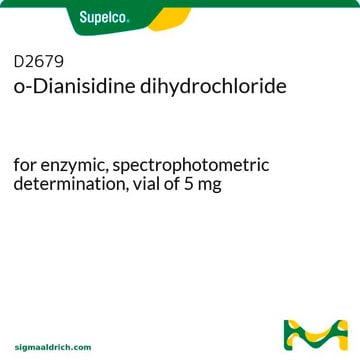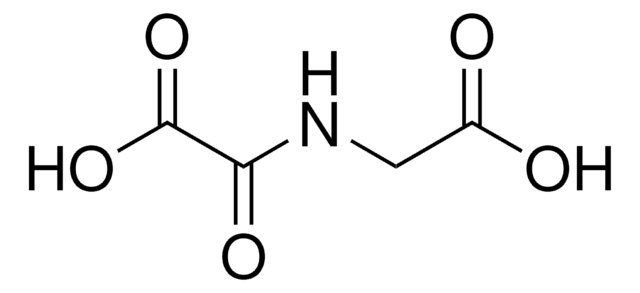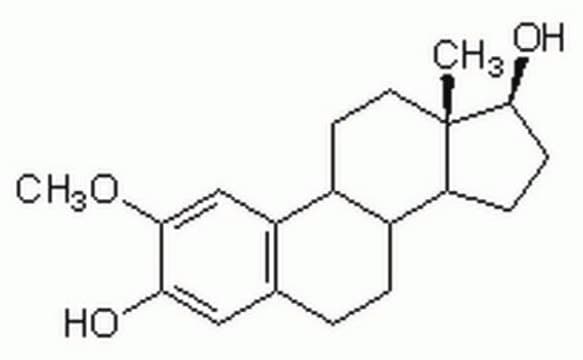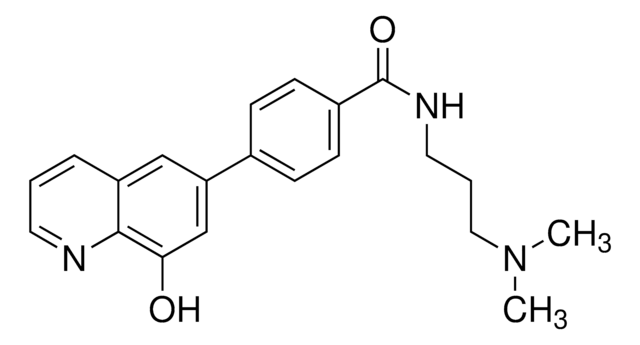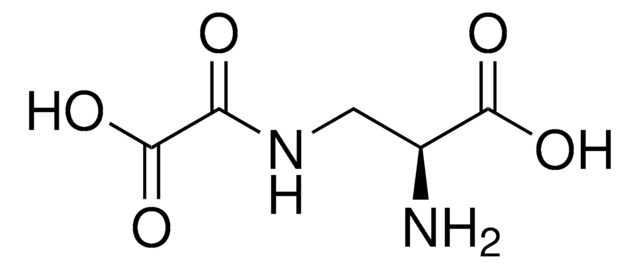D3695
DMOG
≥98% (HPLC), powder, HIF-hydroxylase inhibitor
Synonyme(s) :
Dimethyloxalylglycine, N-(Methoxyoxoacetyl)-glycine methyl ester
About This Item
Produits recommandés
product name
DMOG, ≥98% (HPLC)
Pureté
≥98% (HPLC)
Forme
powder
Couleur
white to off-white
Solubilité
H2O: >30 mg/mL
Conditions d'expédition
wet ice
Température de stockage
−20°C
Chaîne SMILES
COC(=O)CNC(=O)C(=O)OC
InChI
1S/C6H9NO5/c1-11-4(8)3-7-5(9)6(10)12-2/h3H2,1-2H3,(H,7,9)
Clé InChI
BNJOZDZCRHCODO-UHFFFAOYSA-N
Application
- in hypoxia-inducible factor (HIF) activity assay
- to examine its effects on the degradation of HIF-1α and renal regeneration
- in DMOG preconditioning of adipose tissues
- as vehicle control for the primary liquid culture of CD34+ cells
- for endothelial cell stimulation
Actions biochimiques/physiologiques
Caractéristiques et avantages
Mention d'avertissement
Warning
Mentions de danger
Conseils de prudence
Classification des risques
Acute Tox. 4 Oral
Code de la classe de stockage
11 - Combustible Solids
Classe de danger pour l'eau (WGK)
WGK 3
Point d'éclair (°F)
Not applicable
Point d'éclair (°C)
Not applicable
Certificats d'analyse (COA)
Recherchez un Certificats d'analyse (COA) en saisissant le numéro de lot du produit. Les numéros de lot figurent sur l'étiquette du produit après les mots "Lot" ou "Batch".
Déjà en possession de ce produit ?
Retrouvez la documentation relative aux produits que vous avez récemment achetés dans la Bibliothèque de documents.
Les clients ont également consulté
Articles
We offer a variety of small molecule research tools, such as transcription factor modulators, inhibitors of chromatin modifying enzymes, and agonists/antagonists for target identification and validation in gene regulation research; a selection of these research tools is shown below.
Notre équipe de scientifiques dispose d'une expérience dans tous les secteurs de la recherche, notamment en sciences de la vie, science des matériaux, synthèse chimique, chromatographie, analyse et dans de nombreux autres domaines..
Contacter notre Service technique




